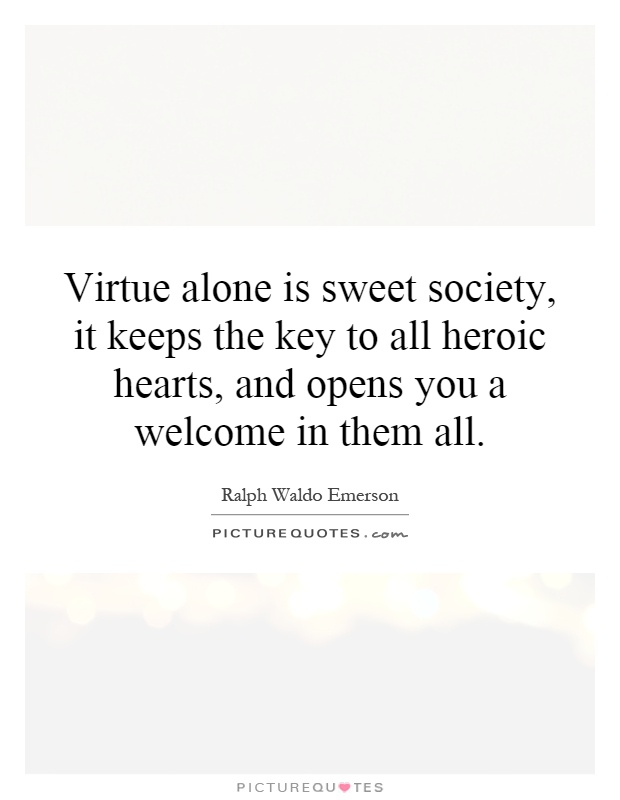Virtue alone is sweet society, it keeps the key to all heroic hearts, and opens you a welcome in them all

Virtue alone is sweet society, it keeps the key to all heroic hearts, and opens you a welcome in them all
Ralph Waldo Emerson, a prominent American essayist, poet, and philosopher, was a firm believer in the power of virtue and its ability to foster meaningful connections with others. In his essay "Friendship," Emerson explores the idea that virtue is the foundation of true companionship and that it is the key to forming deep and lasting relationships with others.Emerson believed that virtue was essential in cultivating genuine friendships and that it was the cornerstone of all heroic hearts. He saw virtue as a guiding force that led individuals to act with integrity, honesty, and compassion towards others. In his view, those who possessed virtue were able to connect with others on a deeper level and were more likely to form meaningful bonds based on mutual respect and understanding.
Emerson also believed that virtue opened the door to welcome in others who shared similar values and beliefs. He saw virtue as a unifying force that brought people together and allowed them to connect on a spiritual and emotional level. By embodying virtue in their actions and interactions with others, individuals could create a sense of camaraderie and solidarity that transcended superficial differences and fostered a sense of unity and belonging.
For Emerson, virtue was not just a personal attribute but a social one as well. He believed that by cultivating virtue in oneself, one could inspire others to do the same and create a community of like-minded individuals who shared a common commitment to living a virtuous life. In this way, virtue became a source of strength and support for those who embraced it, enabling them to navigate the complexities of human relationships with grace and dignity.












 Friendship Quotes
Friendship Quotes Love Quotes
Love Quotes Life Quotes
Life Quotes Funny Quotes
Funny Quotes Motivational Quotes
Motivational Quotes Inspirational Quotes
Inspirational Quotes